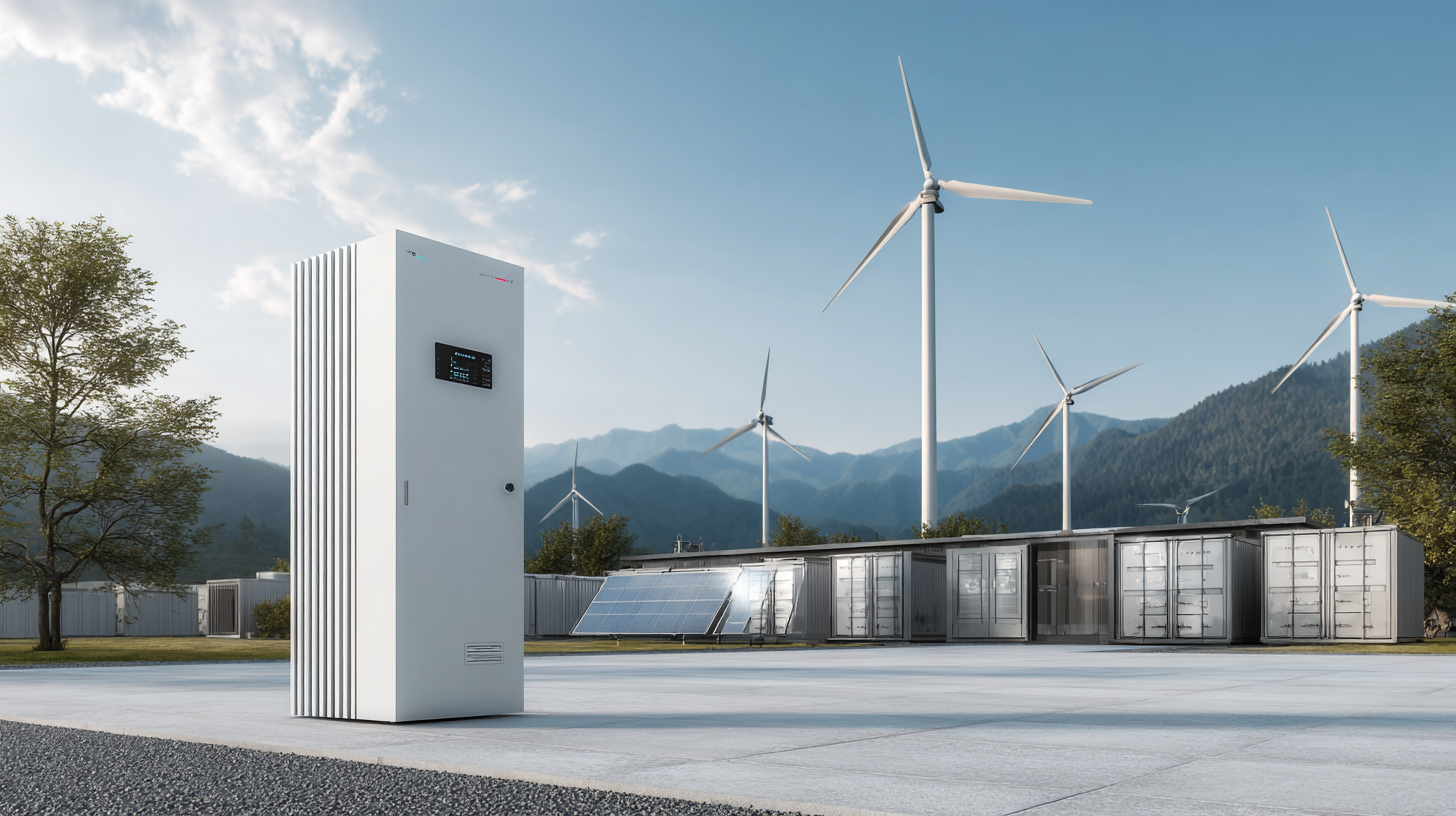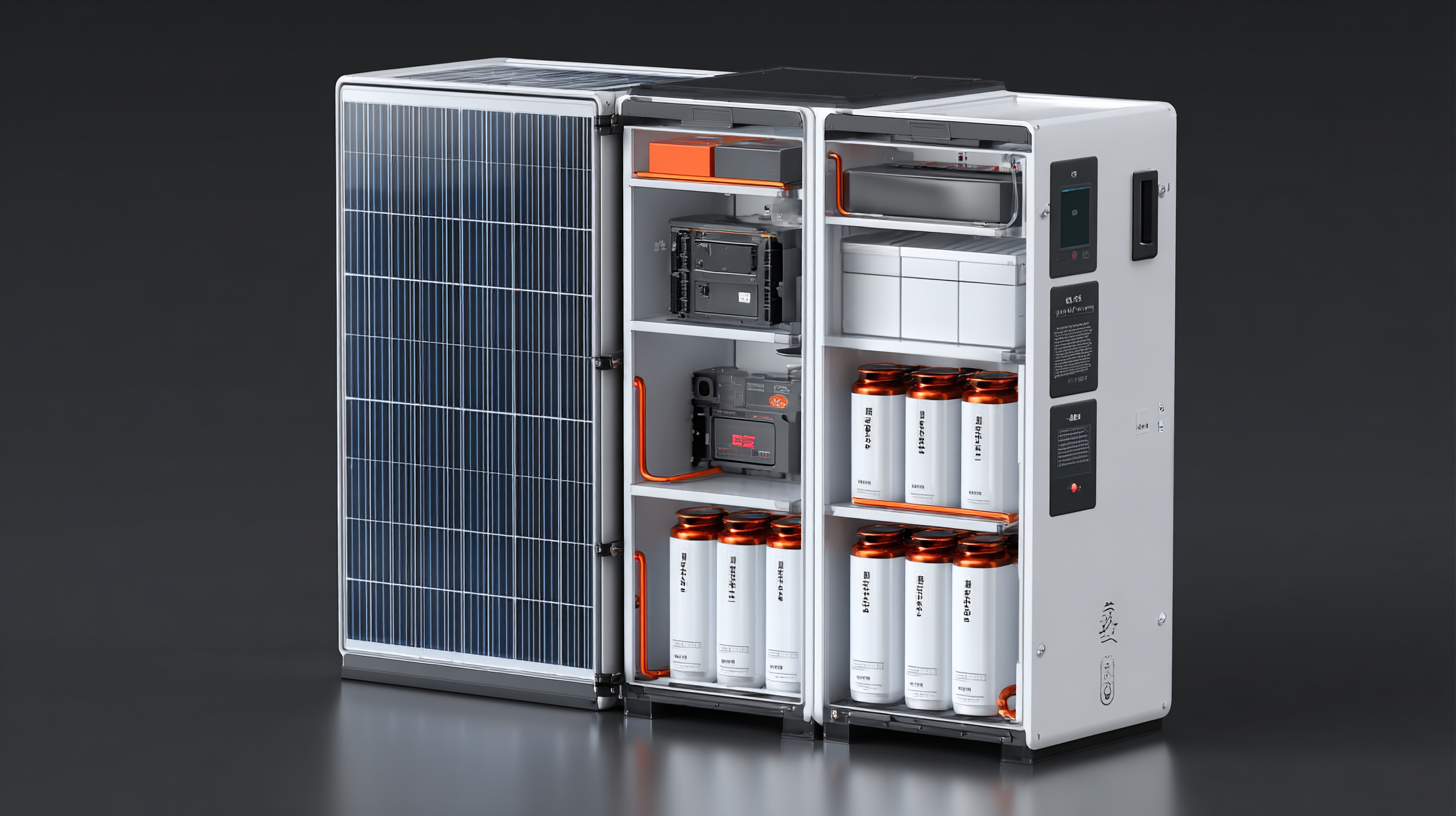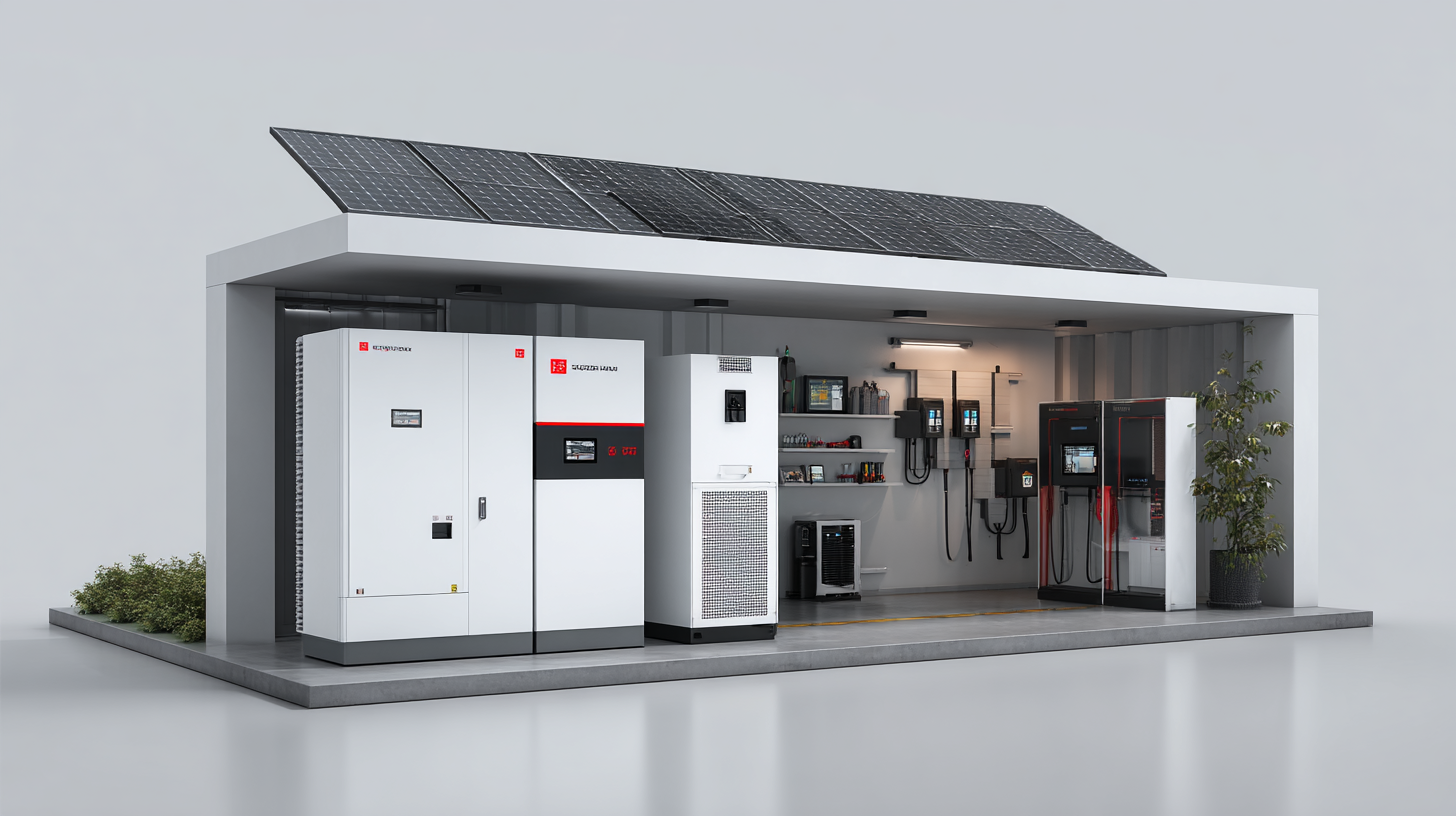Factory Tour
Elevate Your Energy Solutions with the Best Household Energy Storage Battery from China's Premier Manufacturers
In today's world, where energy conservation and sustainability are paramount, choosing the right Household Energy Storage Battery has become essential for every homeowner. As renewable energy sources like solar power gain traction, the demand for efficient and reliable energy storage solutions is on the rise. China, renowned for its innovation and manufacturing capabilities, offers a plethora of options when it comes to energy storage batteries. However, selecting a high-quality manufacturer is crucial to ensure optimal performance, safety, and longevity of these systems. In this blog, we will explore key factors that can help you identify premier manufacturers in China and elevate your energy solutions, ultimately leading to a more sustainable and cost-effective household energy management strategy.

Understanding the Importance of Household Energy Storage Solutions
Household energy storage solutions have become increasingly vital as the world shifts towards renewable energy. According to a recent report by Wood Mackenzie, global residential energy storage deployments are projected to surpass 1.5 million units by 2025, reflecting a staggering compound annual growth rate (CAGR) of 23%. Such growth can be attributed to the dual benefits of optimizing energy usage and enhancing resilience against grid disruptions. With the adoption of technologies like solar panels on the rise, homeowners are now looking for efficient ways to harness and store excess energy for later use.

In China, premium manufacturers are at the forefront of developing advanced household energy storage batteries that promise efficiency and longevity. As outlined in research by BloombergNEF, the cost of lithium-ion battery systems has dropped significantly, by nearly 89% since 2010. This dramatic reduction in price coupled with an increase in storage capacity has made energy storage more accessible to average consumers. The adoption of these innovative solutions not only empowers households to manage their energy consumption more effectively but also contributes positively to national energy goals, aligning with a broader movement towards sustainability and carbon neutrality.
Key Features to Look for in High-Quality Energy Storage Batteries
When choosing a high-quality energy storage battery for your home, several key features should be considered to ensure optimal performance and longevity. First, look for batteries with a high energy density, which indicates that they can store more energy in a smaller space, making them ideal for residential settings. Additionally, the cycle life of the battery is crucial; select batteries that can withstand a high number of charge and discharge cycles without significant degradation. This will maximize the investment in your home energy solution.
Another important factor is the battery’s efficiency rating. A higher efficiency means that more of the stored energy can be used for your household needs, reducing wastage and overall energy costs. It’s also advisable to look for batteries with smart technology features, such as integration with home energy management systems, which can enhance usability and performance.
**Tips:** To find the right energy storage battery, always check customer reviews and ratings from reputable manufacturers. Consider the warranty offerings as they reflect the manufacturer's confidence in the product. Lastly, don’t forget to consult with a professional installer to assess your energy needs accurately and ensure compatibility with your current energy system.
Elevate Your Energy Solutions with the Best Household Energy Storage Battery
| Feature | Description | Importance |
|---|---|---|
| Capacity | Measured in kilowatt-hours (kWh), it indicates how much energy the battery can store. | Critical for determining how long the stored energy can last. |
| Depth of Discharge (DoD) | The percentage of the battery that can be discharged without damage. | Higher DoD means more usable energy. |
| Round-Trip Efficiency | The efficiency of energy stored and then retrieved from the battery. | Important for calculating the overall effectiveness of the system. |
| Lifespan | Measured in cycles or years, indicates how long the battery will last. | Affects long-term investment value. |
| Safety Features | Includes thermal management, overcharge protection, and battery management systems. | Essential for reducing risk of accidents and ensuring safe operation. |
| Warranty | The manufacturer's guarantee of performance and longevity. | Indicates manufacturer's confidence in their product. |
| Size and Weight | Physical dimensions and weight of the battery. | Affects installation options and space requirements. |
| Cost | Initial purchase price, installation costs, and maintenance expenses. | Determines overall investment and return on investment. |
Top Chinese Manufacturers Leading the Energy Storage Industry
As the global demand for reliable energy storage solutions surges, China's premier manufacturers are at the forefront of the energy storage industry. These companies have harnessed advanced technologies and efficient manufacturing practices, establishing themselves as leaders in Battery Energy Storage Systems (BESS). China’s commitment to innovation is not just elevating their market share but also setting benchmarks that the rest of the world, including the EU and the US, are now compelled to follow amidst growing energy crises.

To optimize your energy storage solutions, consider these tips: Firstly, assess your energy consumption needs thoroughly to choose a battery that matches your lifestyle and energy usage patterns. Secondly, keep an eye on warranty and service options offered by the manufacturer — reliable customer support can make a significant difference in maintaining your energy system. Lastly, evaluate the scalability of the systems provided; selecting a modular system may allow for future upgrades as your energy needs evolve.
Amidst geopolitical fluctuations and shifting tariffs altering the landscape, opting for products from reputable Chinese manufacturers can offer both durability and advanced technology, enabling users to secure their energy needs effectively. This synergy of innovation and reliability positions China's energy storage solutions as a critical player in global energy security.
Comparative Analysis of Energy Storage Systems for Home Use
The demand for household energy storage systems is on the rise, with market research indicating a projected growth rate of 20% annually over the next five years. Homeowners are increasingly seeking reliable and efficient solutions to manage their energy consumption, especially as the integration of renewable energy sources like solar power becomes more common. This comparative analysis highlights the key features of various energy storage systems currently available from top manufacturers in China.
When considering energy storage options, it's essential to evaluate battery capacity and efficiency. Lithium-ion batteries dominate the market, thanks to their high energy density and relatively low self-discharge rates, making them ideal for home use. According to the International Energy Agency (IEA), the average storage capacity for residential systems has increased significantly, soaring from 5 kWh in 2018 to nearly 12 kWh today. Furthermore, factors such as installation costs and return on investment should also play a crucial role in your decision-making process.
Tip: Always check the warranty and lifecycle of the battery. A quality battery should have a lifespan of at least 10 years and come with a warranty that reflects its performance. Additionally, consider the scalability of the system, as future energy needs may evolve with the increase of electric vehicle usage and smart home integrations.
Maximizing Efficiency: Best Practices for Utilizing Energy Storage Batteries
When it comes to maximizing efficiency in household energy storage, implementing best practices is crucial. According to a report by the International Energy Agency (IEA), efficient energy management can increase energy savings by up to 30% in residential settings. One of the most effective strategies is to optimize the charging and discharging cycles of energy storage batteries. By using the batteries during peak hours when electricity prices are high, homeowners can significantly reduce their utility bills while ensuring that excess energy generated from solar panels is stored for later use.
Furthermore, routinely monitoring the performance and health of energy storage systems is vital. A study from Bloomberg New Energy Finance indicates that proper maintenance can extend the lifespan of batteries by up to 20%, maximizing both performance and economic returns. Integrating smart home technology to manage energy consumption and storage dynamically enhances the overall efficiency. This technology allows users to schedule energy-intensive tasks during off-peak hours and automatically adjusts settings based on energy availability, which can lead to additional savings and a reduced carbon footprint. By adopting these practices, homeowners can truly elevate their energy solutions and contribute to a more sustainable future.
Energy Storage Battery Capacity Comparison
This chart illustrates the capacity (in kWh) of different household energy storage batteries available in the market. The data highlights how various models maximize energy efficiency and cater to household needs.







